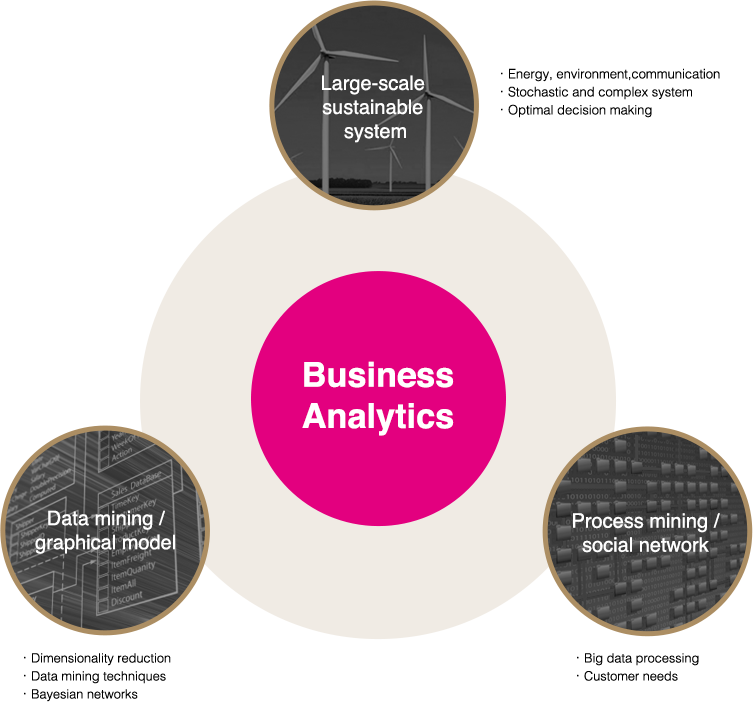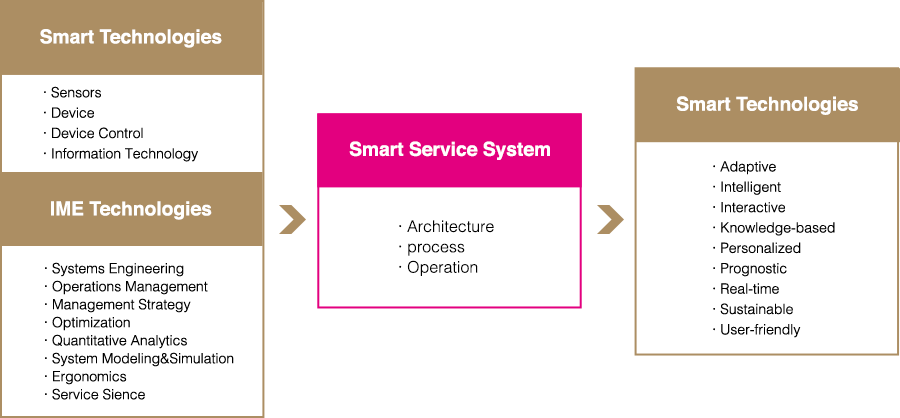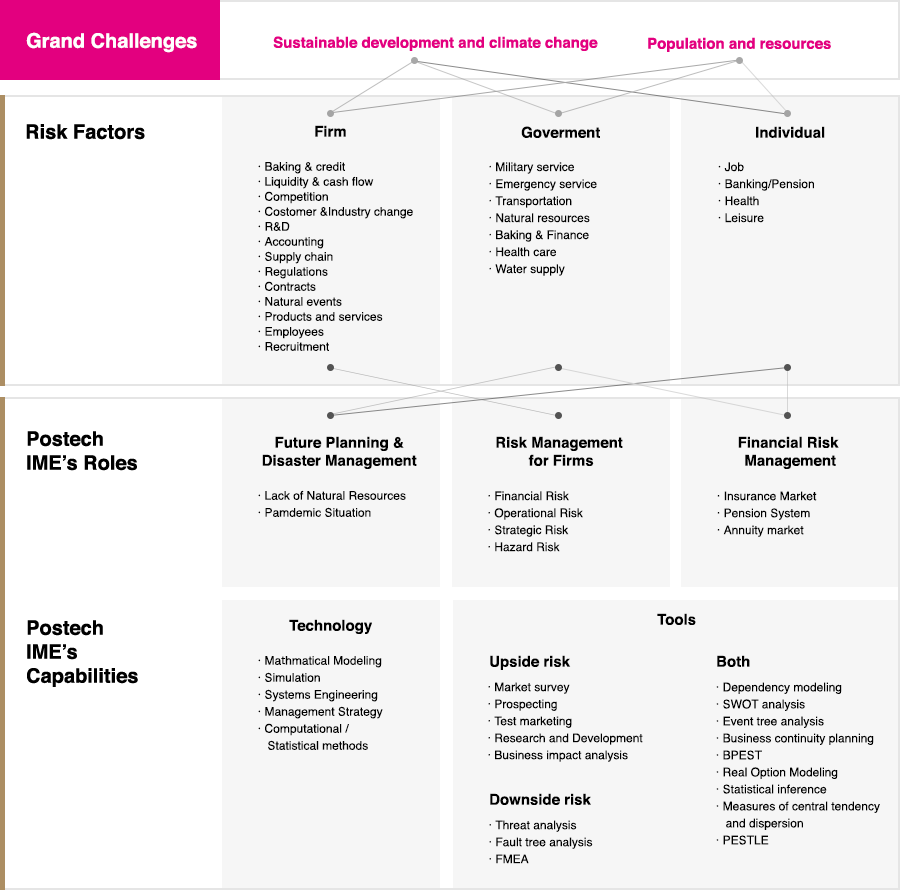Research
Research Thrusts
Boost productivity with system integration and optimization
Industrial and management engineering, which is becoming increasingly important in modern society, is a future study for the creation of an industrial environment that prioritizes ‘productivity improvement’ and ‘quality of life’ through ‘system integration’ and ‘optimization’
The role of industrial engineering is changing due to recent changes in technology, globalization, shortening of product life cycle, and combination of products and services. Department of Industrial and Management Engineering at POSTECH aims to provide a knowledge base and skillset that enable the organization to achieve effective optimization and continuous improvement on the basis of traditional industrial engineering. To achieve this, we have divided into the following three research groups and studies are being organically carried out in harmony with each other.
POSTECH Industrial and Management Engineering Department not only contributes to strengthening competitiveness of Korean industry, but also strives to lead related engineering technology to become a leading university in the world.

Business Analytics Research Group
Based on accumulated data, the BA research group studies quantitative analysis techniques based on statistical techniques and optimization techniques to support corporate decision making and strategy formulation. BA research group extracts information from data and uses it to derive knowledge and finally wisdom. Data mining and optimization techniques are used to derive knowledge and wisdom to develop new methodologies and rationale. BA research group’s main research topics are (1) data mining and graphical modeling techniques, (2) process mining and social network analysis techniques, and (3) large-scale sustainable system analysis.

Smart Service System Research Group
The Smart Service System Research Group studies technologies that optimize the architecture, processes, and operations of the service system to meet the needs and context of stakeholders. Examples of smart service systems include smart home and smart health care, Smart transportation system, and smart factory. The Smart Service System research group conducts research on the development of differentiated and sustainable Smart Service systems in terms of business, operational, and usability which integrates industrial and management engineering technologies such as system theory, business strategy, management analysis technique, ergonomics, service science, and optimization technique with ICT technology. Smart Service System research group’s main research topics are (1) Human-centered system UI / UX design, (2) Smart healthcare service system, and (3) Smart transportation / energy / information network system.

Systemic Risk Management Research Group
The SRM Research Group conducts research on systemic risk management that takes into account the interdependencies of risk factors, from a more diverse perspective on risks at the national, social, and enterprise levels that may arise in modern society. The SRM Research Group focuses on the development of future forecasts and responses to national disasters and enterprise risk management. It then goes beyond the post-management response to previous research and uses pre-emptive measures. SRM Research Group’s major research topics include (1) management of future forecast responses and disaster responses to various crisis situations at the national level, (2) enterprise-wide risk management measures, and (3) desirable financial systems for the aging society.
